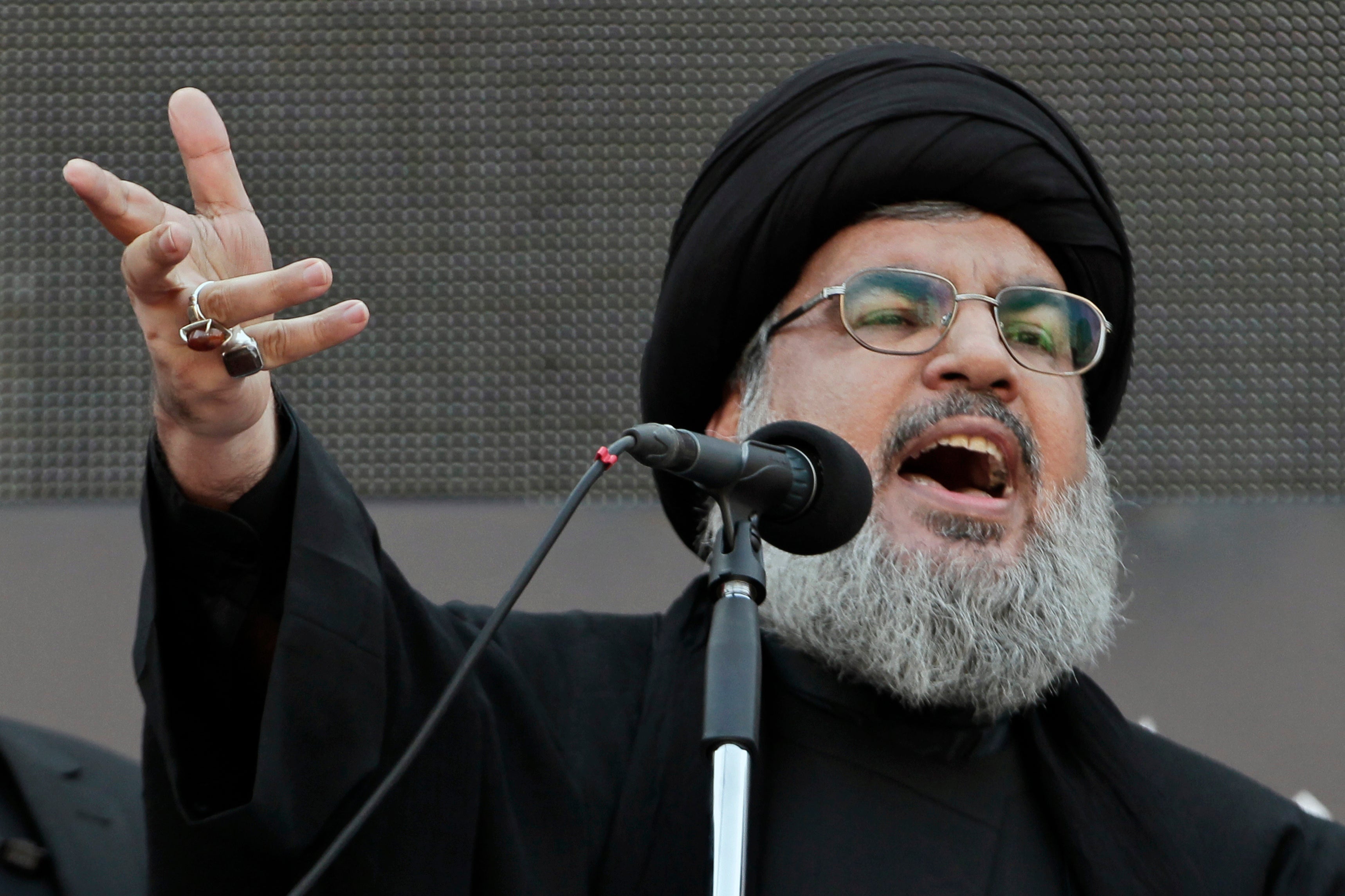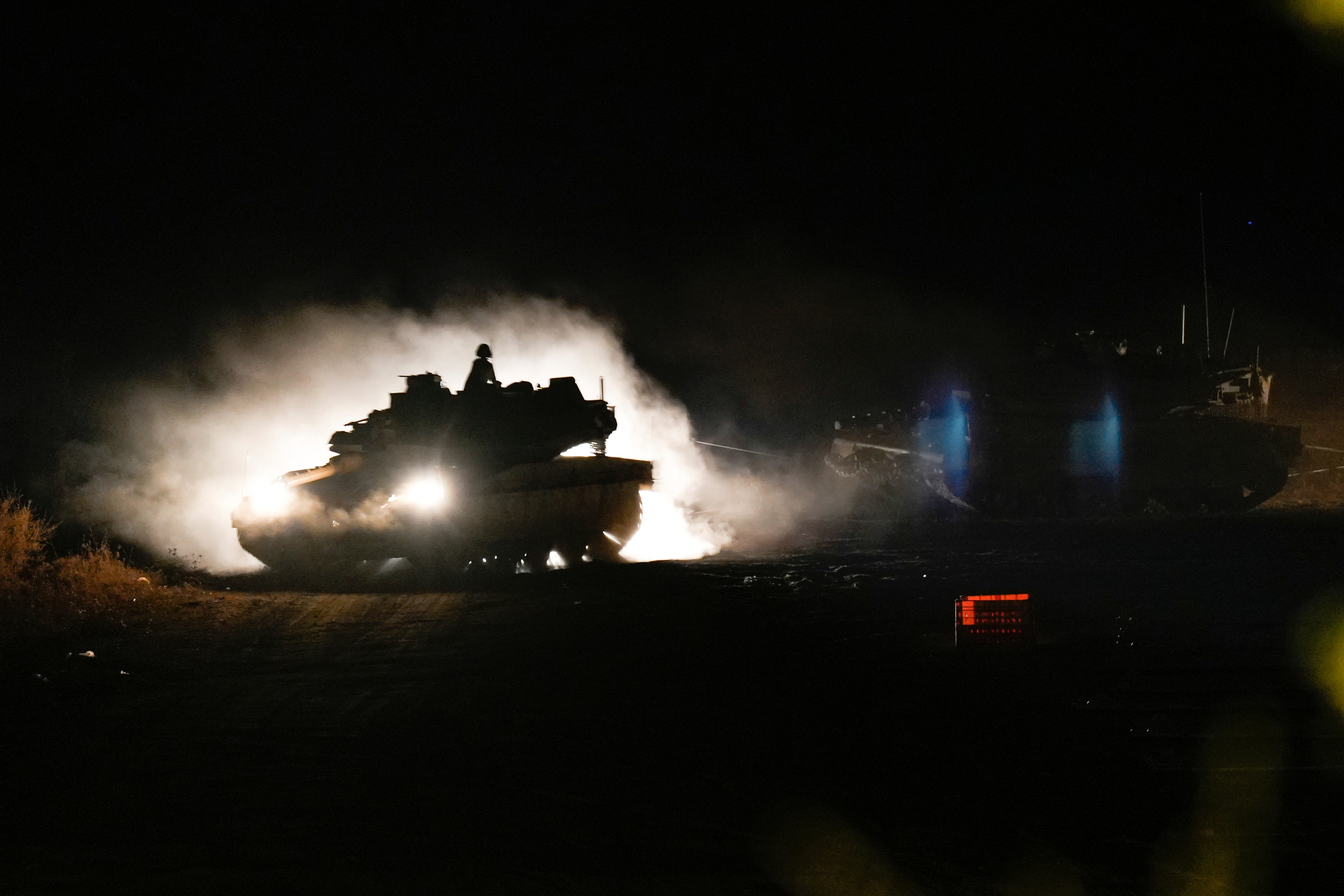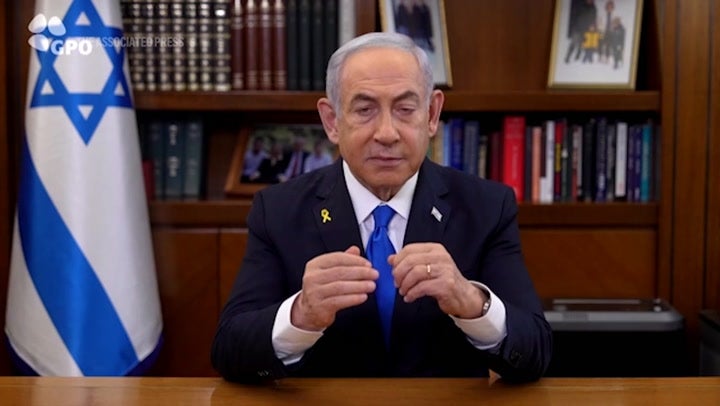Why is Israel invading Lebanon and could it escalate into a regional war with Iran?
Benjamin Netanyahu says there is ‘nowhere in the Middle East [that] Israel cannot reach’

Israeli troops have started an invasion of Lebanon – crossing the border to carry out “targeted ground raids” against Hezbollah across a number of villages.
Since the 7 October attack inside Israel by Hamas and Israel’s subsequent invasion of Gaza, Hamas-ally Hezbollah and Israel have traded fire almost daily over the northern border with Lebanon.
Two weeks ago, a series of exploding device attacks in which Hezbollah pagers and walkie talkies blew up around Lebanon – an attack widely believed to have been carried out by Israel – the conflict has seen a major escalation.
According to the UN’s Office for the Coordination of Humanitarian Affairs, Lebanese authorities say more than one million people have been displaced in southern Lebanon since last October - 90 per cent of which have been in roughly the past week. Around 60,000 Israelis have been evacuated from northern towns in the same period.
More than 1,000 people have been killed, including more than 100 women and children in the past two weeks, according to the Lebanese health ministry.

This includes more than a dozen Hezbollah commanders, including leader Hassan Nasrallah, who led the militant group for more than three decades.
But what is Israel’s goal in going forward with a ground invasion?
What is Israel’s military doing?

Israel says its invasion is aimed at guaranteeing security for the northern border.
The Israeli military confirmed at 2am local time on Tuesday morning that it would be launching an asault into “villages close to the border” in southern Lebanon.
On Tuesday morning, Israel said intense fighting had erupted with Hezbollah as commandos and paratroopers launched raids.
Israel says it will be a “limited, localised” operation. In comments to the Washington Post, US officials suggested Israeli troops may withdraw after completing their objectives in southern Lebanon.
But Israel has left the door open to a larger scale invasion in the coming weeks if its objective of pushing Hezbollah back and returning Israeli citizens to their homes.

Major General Ori Gordin, the head of the military’s Northern Command, reportedly wants to clear Hezbollah fighters and infrastructure away from the border to create a “buffer zone,” which would allow the evacuated Israelis to return home.
Hezbollah, a proscribed terrorist group in the UK, was formed in 1982 but gained significant military power in the 2006 Lebanon War against Israel. Its stated objective is to drive Israeli forces away from southern Lebanon.
The group is aligned with Iran, which is understood to provide most of its funding. Hezbollah’s military wing is sophisticated and thought to be about the strength of a medium-sized army, stronger than Lebanon’s own forces.
What could be the wider consequences of Israel crossing the border?
With its close ties to Iran, a direct assault on Hezbollah runs the risk of drawing the country – a long-time opponent of Israel – into the conflict. Tensions already reached a high point in April when Iran launched a drone and missile attack on Israeli targets in April, responding to the country’s bombing of part of the Iranian embassy in Damascus, Syria.

Speaking in a video which he said was addressing the Iranian people - but in which he spoke English - Israeli prime minister Benjamin Netanyahu said there is “nowhere in the Middle East Israel cannot reach”.
It was a thinly-veiled threat to Tehran, which Mr Netanyahu accused of bringing its own people “closer to the abyss”.
“There is nowhere we will not go to protect our people and protect our country,” he added. “When Iran is finally free - and that moment will come a lot sooner than people think - everything will be different.”
The West had urged Israel not to invade Lebanon amid concerns of an all-out regional conflict dragging in Iran and huge diplomatic pressure is also being applied on Tehran not to get involved.
Israel and Iran have been trading barbed rhetoric and threats about escalation for months, but Mr Netanyahu’s decison to push into Lebanon is a risk. He may see it as a calculated risk – but the US, UK and other nations across the West and Middle East will be deeply concerned about where it might lead. They will see Iran’s response – or preferably a lack of one – as key.
Join our commenting forum
Join thought-provoking conversations, follow other Independent readers and see their replies
Comments
Bookmark popover
Removed from bookmarks